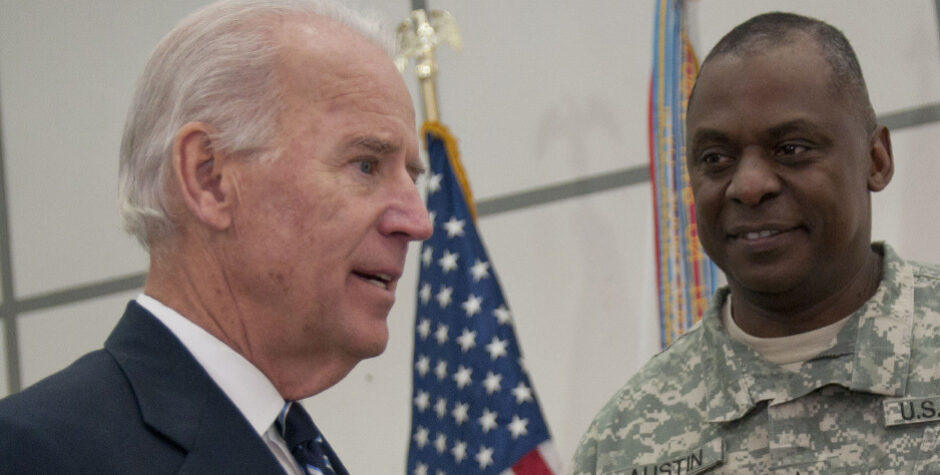General Lloyd Austin: Is He the Right Person for Secretary of Defense?
Former Vice President Joe Biden continues to flesh out his cabinet. His choices are essentially the Obama Administration 2.0. The Obama years of a depleted military, expansive federal regulations, weak border security, and a stagnant economy appear to be fully embraced by a Biden Administration. His selection of General Lloyd Austin is an exception to these selections. Austin served in the military, including during the eight years of the Obama presidency. But as with all military officers, he was publicly non-partisan in his service as a senior leader in the United States Army. He was not a political appointee.
General Austin had an exemplary military career. A West Point graduate, he rose through the ranks to become the Vice Chief of Staff of the Army and ended his career as the commander of United States Central Command (CENTCOM). If confirmed, he would be the first African-American Secretary of Defense.
I had the opportunity and honor to work with General Austin several times when he was the visiting dignitary to the Families of the Fallen at Dover Air Force Base. I found him to be a compassionate leader. His interactions with the families, as well as with me and the other staff members at Casualty Affairs at Dover, exhibited a man with good people and communication skills that reflected his empathy for service personnel and their families.
However, there are legitimate questions about his qualifications to be the new Secretary of Defense. Choosing the person to lead the largest branch of the federal government should not be about race, diversity, or how much Joe Biden learned to like the general when Biden was Vice President. The Pentagon is a large, complex organization. Running this organization requires leadership skills that some may legitimately question regarding Austin.
For starters, the Atlantic reports that in advising President Obama about the Middle East, General Austin described ISIS as a “flash in the pan.” One might ask if this is what influenced President Obama to categorize ISIS as the junior varsity team of terror groups. No one knows for sure. And while other media outlets picked up on the Atlantic piece, the sourcing of this information has not been widely verified. But the matter raises questions that General Austin needs to address. If he did not say that, he should say so. If he did describe ISIS as a passing phenomenon, he should explain his rationale for this.
Additionally, General Austin was the commander in Iraq when President Obama ordered the withdrawal of American forces. The vacuum created by the withdrawal is what led to the rise of ISIS. Ultimately, the decision to summarily remove U.S. forces was one made by the President. But it is a fair question for the general to wit, “What did you advise President Obama to do? Did you personally think, as the commander there, that President Obama’s decision was a mistake?”
Finally, General Austin was the head of CENTCOM when $500 million of U.S. tax money was spent to train Syrian fighters to oppose the Assad regime in that civil war. That training program, part of the U.S. strategy for the Middle East, was an unmitigated disaster. The goal was to train thousands of freedom fighters in Syria. When questioned about this in a congressional hearing, General Austin admitted that the huge investment resulted in training only 3 or 4 effective fighters. Really? That is a reflection on his leadership.
At other echelons of the military, that kind of failure could lead to being relieved of command. His name was on the bottom line of that operation. How can a senior leader have that much money, combined with thousands of U.S. troops in the theater of operations, and train less than a half dozen Syrian fighters to assist the U.S. and its allies in Syria? In the United States military, senior leaders are held accountable. They are responsible for the performance of their subordinates up and down the chain of command. At the very least, General Austin must be questioned about this. And it is possible that his inability to manage this large, important mission will be a disqualifier when he is considered to lead the largest and most complex branch of the federal government.
In order to serve as the Secretary of Defense, Austin must receive a waiver from Congress, as he has been out of uniform less than the required seven years. In addition to affirming civilian leadership of the armed forces and how a possible waiver addresses this, General Austin’s leadership capabilities must be candidly assessed. His service at the highest levels of the military is a matter of record, which must be taken into account when considering him to be the new Secretary of Defense.
